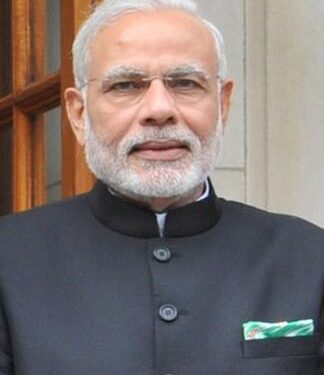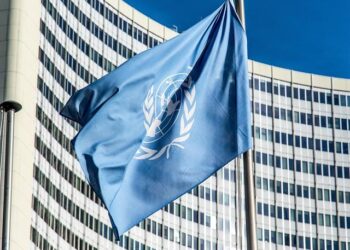Indian Prime Minister Narendra Modi is set to visit Cyprus amid growing geopolitical shifts in South Asia and the Eastern Mediterranean, following India’s recent military operation, dubbed “Operation Sindoor.” This visit comes at a time when Pakistan and Turkey are reportedly forging closer strategic ties, heightening regional complexities. Modi’s trip underscores India’s intent to strengthen diplomatic and economic relations with Cyprus, a key player in the Eastern Mediterranean, while navigating the evolving security landscape shaped by shifting alliances.
PM Modi’s Cyprus Visit Signals Strategic Pivot in South Asian Diplomacy
The upcoming visit of Prime Minister Narendra Modi to Cyprus marks a significant recalibration in India’s diplomatic strategy, especially in light of the recent intensification of Pakistan-Turkey ties following India’s Operation Sindoor. Analysts view this move as a deliberate effort by India to strengthen its foothold in the Eastern Mediterranean and build bridges with smaller but geopolitically important nations. Cyprus, strategically located at the crossroads of Europe, Asia, and Africa, offers India a unique platform to diversify its partnerships beyond traditional allies, while addressing complex regional security challenges.
During the visit, key agendas are expected to include:
- Enhancing bilateral trade and investment opportunities
- Collaboration in energy security, particularly in offshore natural gas exploration
- Synergizing counterterrorism efforts and intelligence sharing
- Deepening cooperation in maritime security within the Mediterranean region
Moreover, this visit comes at a time when India aims to counterbalance the growing influence of the Pakistan-Turkey axis that has been vocal against New Delhi’s recent strategic initiatives. The interaction is also likely to pave the way for expanded cultural exchanges and tourism, capitalising on Cyprus’s historic links with South Asia.
| Focus Areas | India-Cyprus Collaboration |
|---|---|
| Trade Growth | Boosting bilateral commerce by 20% in 2 years |
| Energy | Joint ventures in LNG and renewable projects |
| Security | Enhanced naval exercises and intelligence cooperation |
| Culture | Initiatives promoting shared heritage and tourism |
Analyzing the Impact of Pakistan-Turkey Closer Ties on Regional Stability
The emerging strategic alignment between Pakistan and Turkey is increasingly shaping the geopolitical landscape of South Asia and the broader Middle East region. Both nations have intensified diplomatic exchanges, military collaborations, and economic partnerships, creating a new axis that could counterbalance India’s regional influence. This closer partnership not only strengthens their bilateral ties but also creates challenges for neighboring countries seeking to maintain a delicate equilibrium in this volatile zone. The implications are particularly significant given the timing, as India steps up its security operations post-Operation Sindoor, a move perceived to recalibrate power dynamics within Kashmir and beyond.
Key factors influenced by the Pakistan-Turkey rapprochement include:
- Military Cooperation: Joint exercises and intelligence sharing have enhanced Pakistan’s defensive capabilities, increasing regional military deterrence.
- Economic Collaboration: Initiatives such as trade agreements and infrastructure projects signal a long-term commitment to mutual growth and stability.
- Diplomatic Support: Turkey’s vocal backing of Pakistan in international forums adds diplomatic weight to Pakistan’s stance on contentious issues.
| Aspect | Pakistan | Turkey | Regional Impact |
|---|---|---|---|
| Military | Increased defense procurement | Transfer of military tech & advisors | Heightened deterrence |
| Economic | New trade corridors | Investment in infrastructure | Economic interdependence |
| Diplomatic | Platform at OIC & UN | Vocal international support | Shift in alliances |
Recommendations for Strengthening India’s Diplomatic and Security Posture in the Evolving Geopolitical Landscape
To effectively counterbalance the emerging Pakistan-Turkey strategic alignment, India must prioritize enhancing its diplomatic engagements in key regional theatres, including the Mediterranean and Western Asia. Strengthening partnerships with Cyprus and other Eastern Mediterranean nations can serve as a vital counterweight, facilitating intelligence sharing and joint security initiatives. Moreover, India’s diplomatic corps should focus on building multilateral coalitions that address common concerns such as maritime security, counterterrorism, and energy stability, thereby projecting a robust and united front in a fragmented geopolitical environment.
On the security front, expanding India’s rapid response capabilities and fostering closer defense cooperation with like-minded countries will be critical. This involves upgrading surveillance infrastructure along contentious borders while investing in emerging technologies such as AI-driven threat detection and cyber defense systems. The following table outlines priority areas for strategic investment and collaboration:
| Focus Area | Recommended Action | Potential Partners |
|---|---|---|
| Maritime Security | Joint naval exercises & intelligence sharing | Cyprus, Greece, Israel |
| Cyber Defense | Develop AI-based threat detection platforms | USA, Israel |
| Counterterrorism | Enhanced coordination & intelligence fusion centers | UAE, France, Cyprus |
Final Thoughts
As Prime Minister Narendra Modi prepares to visit Cyprus, the geopolitical landscape of South Asia and the Eastern Mediterranean continues to evolve amid shifting alliances. With the recent alignment between Pakistan and Turkey following India’s Operation Sindoor, Modi’s visit underscores New Delhi’s strategic intent to strengthen ties with key regional players and reaffirm its diplomatic outreach. Observers will be watching closely to see how this trip impacts India’s regional stance and the broader balance of power in the face of emerging partnerships.
















